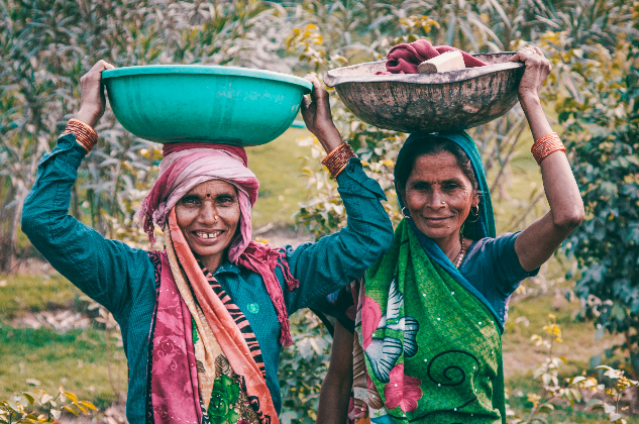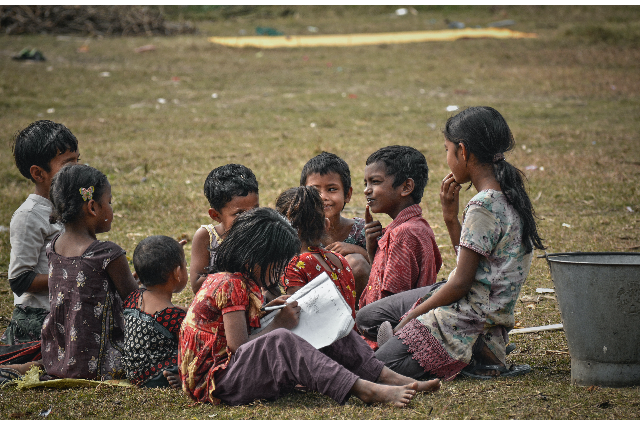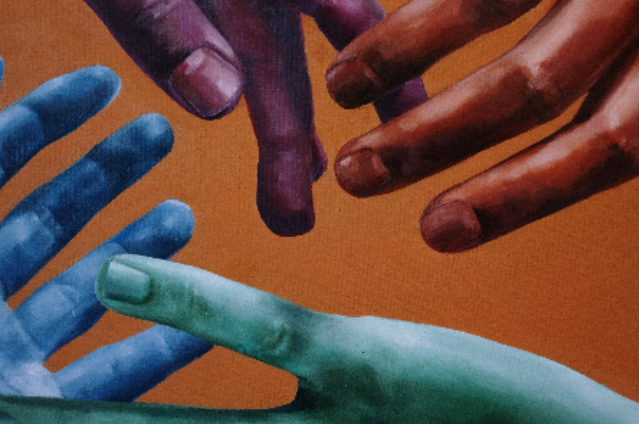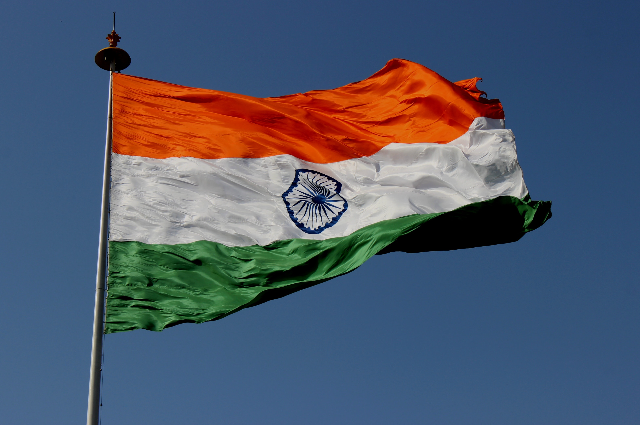India was reeling from a decade of brutal war, political turmoil, and economic unrest during the 1980s and 1990s. Even so, the streets were alive with the collision of people from all walks of life. And as the complex conundrum of the changing times unfolded, Mahesh Dattani, then a 32-year-old playwright notable for his use of words and one of the few to incorporate them in fine art and cinematography, embarked on a journey to take it all in. The young writer first portrayed his visuals in a play titled Where There's a Will, in 1986, which journeyed with issues about combating the repercussions of family members interfering too much in one's life, thereby overshadowing and corroding one's personality, desires, dreams, and ambitions and stream of thought. Until then, knowledge about India was limited to what we had seen in Satyajit Ray films or read about in literature. But post-1986, Dattani quickly realised that it was almost impossible to encapsulate Indian society in words or art.
India is such a complex country, where several cultures and traditions meld together. What we know about the Indian subcontinent until the 1950s is merely a traditional, conventional society full of limitations. However, Dattani's works have shown a break from this stereotype.

Dattani‘s plays are written for the stage. While poetry is meant to be read and enjoyed, plays are meant to be staged. Visual quality and dramatic effect are of paramount importance. Dattani accordingly suits his material to the present, constantly reshaping and fine-tuning his texts.
The plays by Dattani have been quite successful and have captured the imagination of the middle-class audience. Almost all of Mahesh Dattani's plays are about social issues that are deeply rooted in prejudices and issues that society is usually conditioned to avoid. His plays deal with gender discrimination, communalism, gender identity, and several other social issues. The play "Tara" deals with the gender discrimination faced by an individual in a society; "30 Days in September" fights against issues of child abuse; "Final Solutions" is about the dwindling issues of partition.


What makes Dattani a wordsmith is that his plays have a universal appeal. They can be staged anywhere in the world, drawing the full attention of the audience. He moulds his subject in such a way that it is both tropical as well as global in scope. His plays speak across traditional and cultural boundaries. It may, however, be noted that these plays are of essential Indian origin. Dattani makes great use of Indian mythology, rituals and traditions, and contemporary problems in India, but he elevates these themes to a higher level, touching on the emotions of love, happiness, sexual fulfilment, and the problem of identity.

In the last decade of the twentieth century, Mahesh Dattani's plays emerged as a break free into the domain of Indian English Drama. The plays have a lot of relevance today. 'They are plays of today,' writes John McRae in his Introduction to Dattani's plays, 'sometimes so current as to cause controversy, but they are also plays that embody many of the classic concerns of world drama.’ From gender issues to sexuality, every problem is handled in the same way by Dattani. He addresses the issue of homosexuality in "Bravely Fought the Queen" and "On a Muggy Night in Mumbai." While traditionalists regard such a relationship as unnatural, obnoxious, and even sacrilegious, they often face several criticisms for the discussion of unrevealed truths about society.

His success as a playwright is based on the fact that his plays are a slice of life. They present reality as it is. He writes about reality, and the play "30 Days in September" is an excellent example of his observations. Dattani authored this play after being confronted by the NGO-RAHI (Recovery and Healing of Incest). He wanted to show the impact of child sexual abuse in this play, so he talked with seven or eight adult women about their childhood experiences where they had witnessed sexual abuse by their family members.

In "Tara," he addresses the issue that, even in an urban society in a metropolitan city like Bangalore, parents prefer the son and ignore the daughter, despite the fact that she is more intelligent than her brother.
Mahesh Dattani is a playwright who unapologetically addresses the issue of homosexuality in his work "Bravely Fought the Queen," where he states, regarding women who suffer because of their husbands' wrongdoings, and where it is brought to light that one of the husbands' involvements are in a homosexual relationship. "Bravely Fought the Queen" is one play that depicts men's exploitation of women throughout history. In her novel "My Story," Kamala Das attempts to depict a similar concept.

In an interview with Mahesh Dattani and The Hindu, Dattani said, "I write for my milieu, for my time and place, middle class and urban Indian... My dramatic tensions arise from people who aspire to freedom from society... I am not looking for something sensational; there are under-explored spaces that deserve their space... It‘s no use brushing them under the carpet. We have to understand the marginalised, including gays. Each of us has a sense of isolation within given contexts. That's what makes us individuals!"

Mahesh Dattani is a member of the intelligentsia because his work is avant-garde. Dattani's works frequently depict dialogues about aspects of breaking free from antiquated forms of society and constructing individuality. In comparison to his colleagues, Dattani had the fortitude to depict a quantum leap in almost all of his works, notwithstanding the fact that a large portion of them was set in the 1980s and 1990s. Because of his contemporaneity, this playwright/film personality cannot be easily dismissed. Dattani's greatness stems from his belief that theatre is a functional art form.

. . .
Works Cited:
- Joshi, Shamani. “A Series of Forgotten Photos Capture What Life Was Like in 1980s India.” A Series of Forgotten Photos Capture What Life Was Like in 1980s India, 26 April 2022.
- Somani, Seema. “Mahesh Dattani: A Pioneer in Contemporary Indian Drama in English.” Volume V, Issue I, 2018.
- Anjana, B. K. “Mahesh Dattani as a Playwright.” Mahesh Dattani’s “Tara” Volume I, 2020.
- Souza De Eunice. “Some Recent Plays in English,” Perspectives on Indian Drama in English, Page 163
- The New Indian Express, Friday, October 15, 1999.
- The Hindu, Sunday, March 9, 2003.
